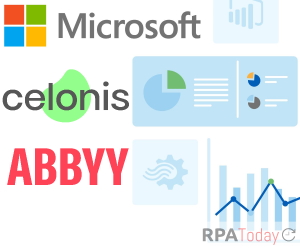
A pair of acquisitions highlights the growing importance of process intelligence and the vital role it plays in the RPA and intelligent automation space.
Microsoft, which publicly launched a process mining tool called process advisor for its Power Automate RPA offering last June, will add to that tool’s capability after the acquisition of Minit. Microsoft said the Bratislava, Slovakia-based process mining company will improve the RPA experience for users by enabling executives to better understand the performance of their processes and make better decisions about how and what processes to automate.
From Minit’s perspective, according to the company’s Chief Strategy Officer Rasto Hlavac, the merger enables the company to reach a much larger customer base with technology it thinks can sit at the “core of every digital transformation initiative.”
Separately, Celonis, a pioneer in the process mining space and one of the largest companies in the industry, announced it had acquired German process intelligence provider Process Analytics Factory (PAF). PAF, coincidentally, has its own connection to Microsoft as a “leading provider of process mining insights” to Microsoft Power BI. The acquisition means Microsoft Power Platform users now have access to Celonis’ Execution Management System through its integration with PAF.
According to Ryan Raiker, senior director of Process Intelligence Product Marketing at ABBYY notes that Celonis’ move signals consolidation in the pure-play process mining market and that the twin acquisitions indicate the technology’s elevated importance.
“The digital transformation sweeping every industry, and one that has relied heavily on traditional business intelligence tools, also birthed process mining, which leverages the digital ‘breadcrumb trail’ (i.e., event logs),” Raiker said. “Today there are at least two dozen products on the market to choose from, with more coming and, as we see here, consolidating. Transformation leaders demand the ability to obtain an intimate understanding of how people, data, and technology – including legacy and homegrown – work together across the enterprise. The demand means moving beyond business intelligence and repositories of data to scale actionable insight from process intelligence.”


